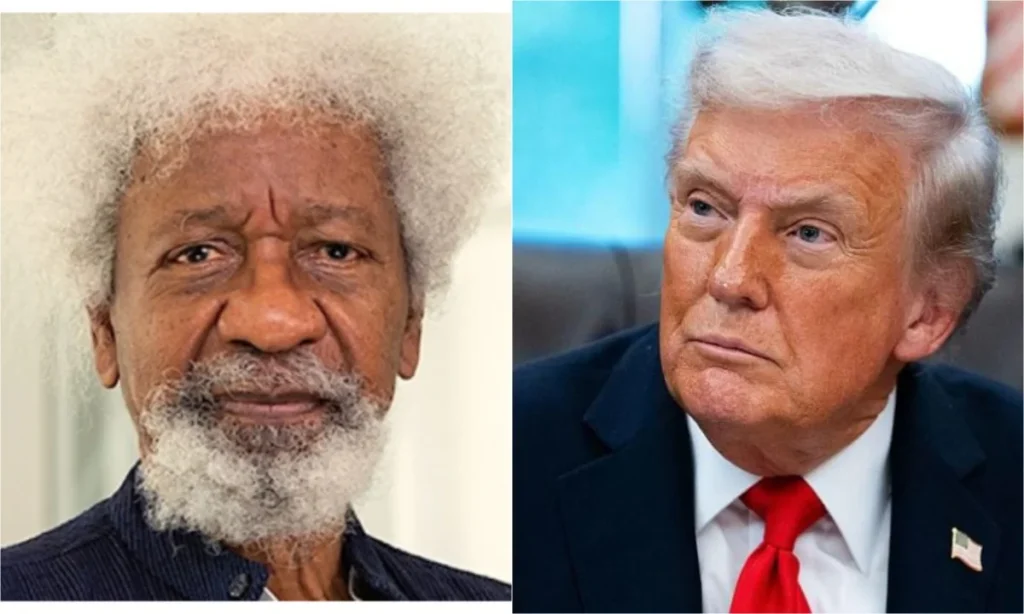Nobel Laureate Professor Wole Soyinka has confirmed that the mass cancellation of U.S. travel documents by the Donald Trump administration came as no shock to him.
In an interview published on Wednesday, Soyinka stated he saw the development coming. He characterized the administration’s actions as fully consistent with President Trump’s established political views.
The prominent literary figure recently had his own visa rescinded by U.S. authorities. The official reason given was that possession of the document constitutes a privilege, not an inherent right.
Critique of President’s Style and Rhetoric
Professor Soyinka offered a harsh assessment of the U.S. leader, calling his approach that of a “petty-minded dictator.” He observed the manner in which the President treats his perceived adversaries.
“This is a petty-minded dictator, you see how he deals with his objects of hate.”
The Professor highlighted what he perceived as a disturbing increase in political tension and violence. He cited a measurable rise in extrajudicial killings that correlated with the President’s public language. “We saw that dark side of the American side,” he stated.
He insisted that “There were more killings, extrajudicial killings by the police of black people, of minorities, during that build-up, during the campaign, and on account of hate rhetoric, the hate rhetoric of this individual.”
Soyinka explained his long-held prediction regarding the tightening of U.S. immigration controls. “I saw it and I said, listen very carefully and you can go and check this I said, ‘When that man comes to power, the first thing he will do is cancel even the green cards’,” Soyinka recounted from the discussion.
A Vow to Challenge Injustice
Professor Soyinka has consistently voiced strong disapproval of President Trump. He views this critique as an essential element of his responsibilities as a global citizen. He maintains this role requires him to challenge bad governance, racism, and injustice universally.
The literary icon made a powerful statement shortly after President Trump’s election victory in December 2016. Soyinka captured international attention by publicly destroying his U.S. Green Card in protest.
That dramatic gesture underscored his rejection of the political direction the incoming administration represented.
The continuous disagreement between these two figures underscores a profound difference in ideology. Soyinka, a vocal proponent of human rights, remains a powerful voice challenging the administration’s policies on race and immigration.




















